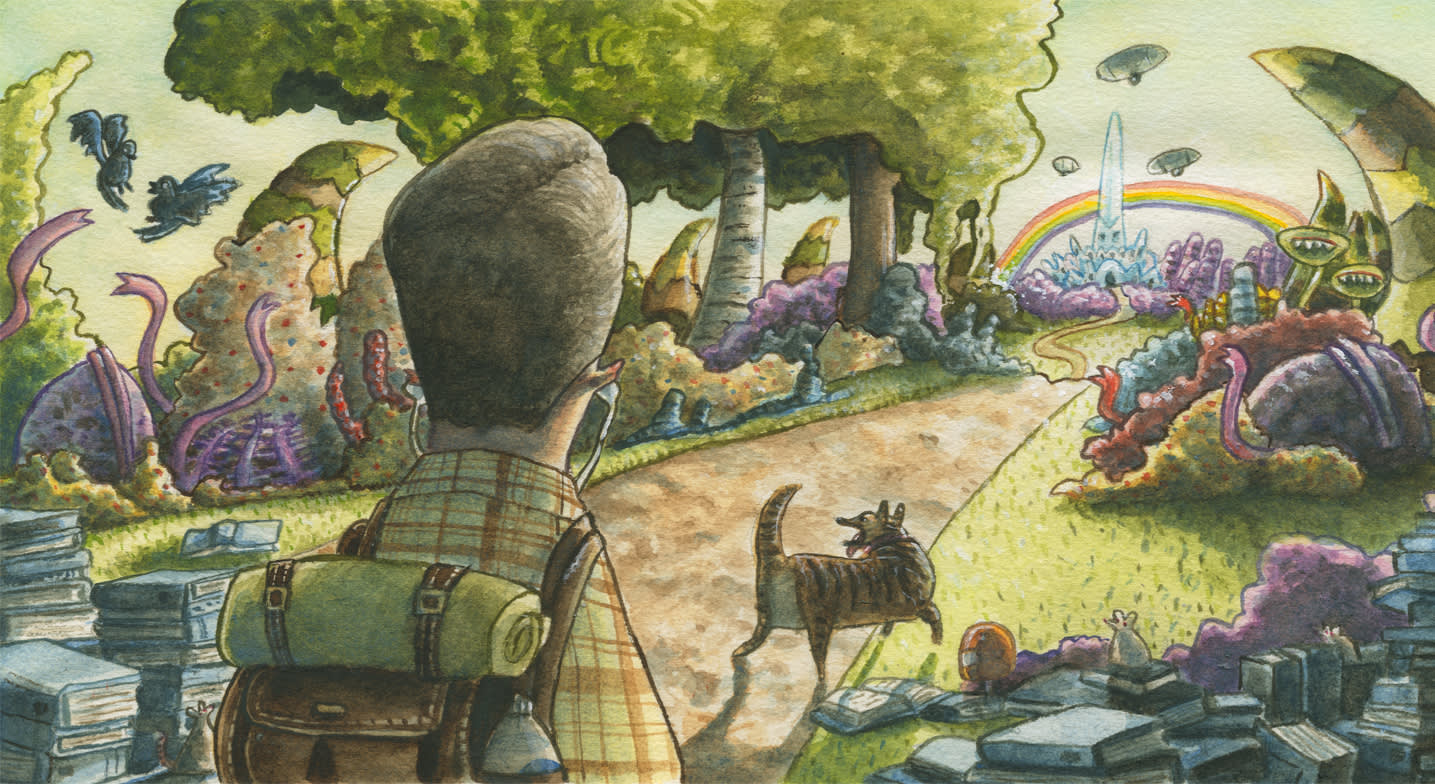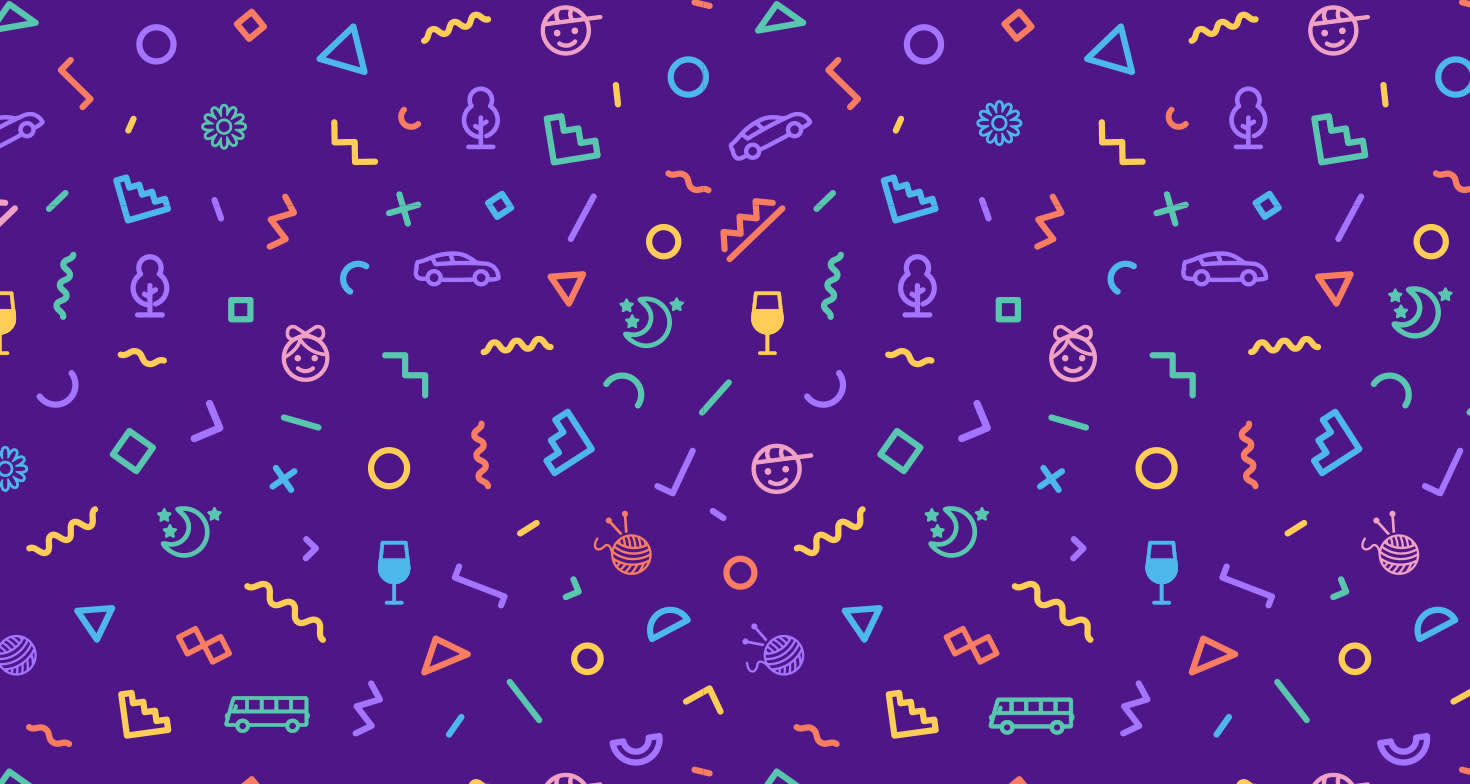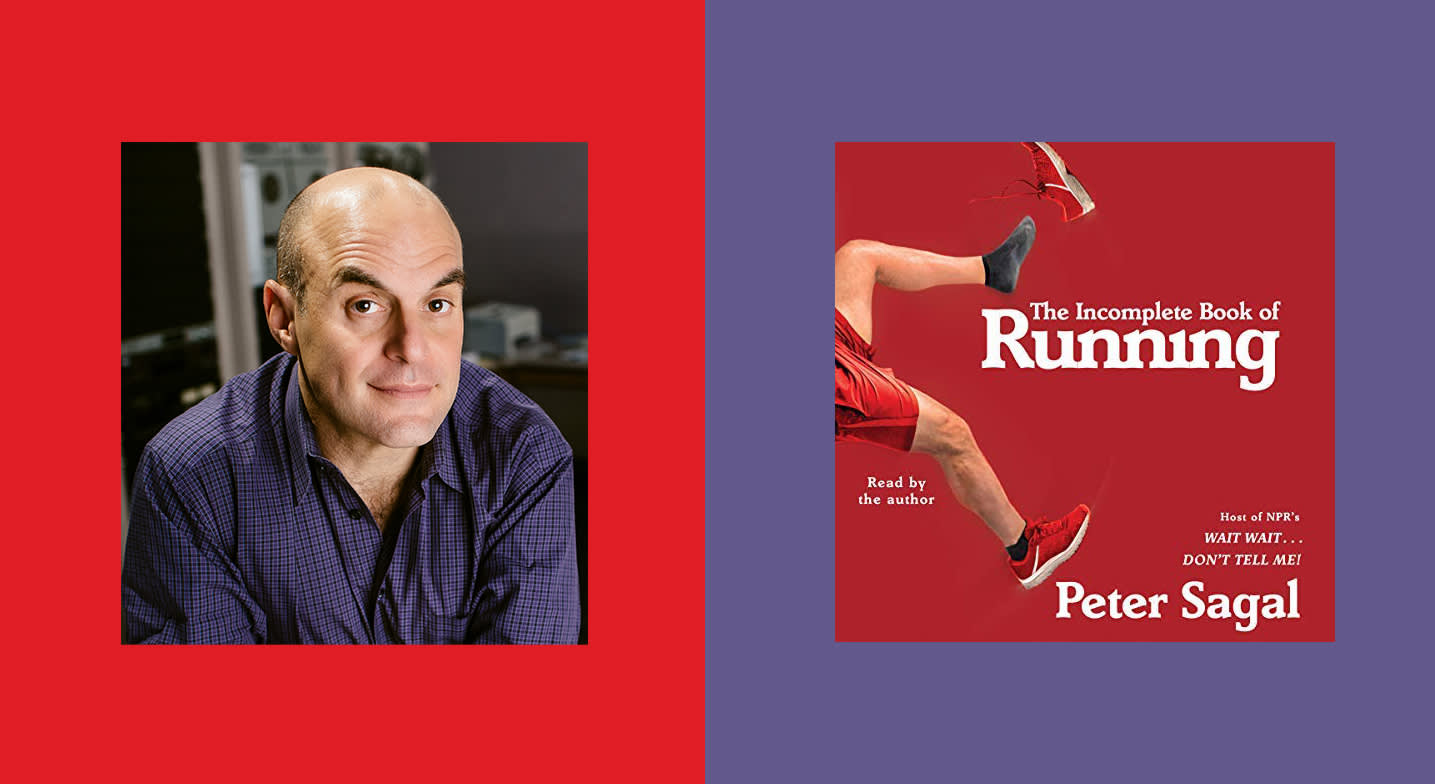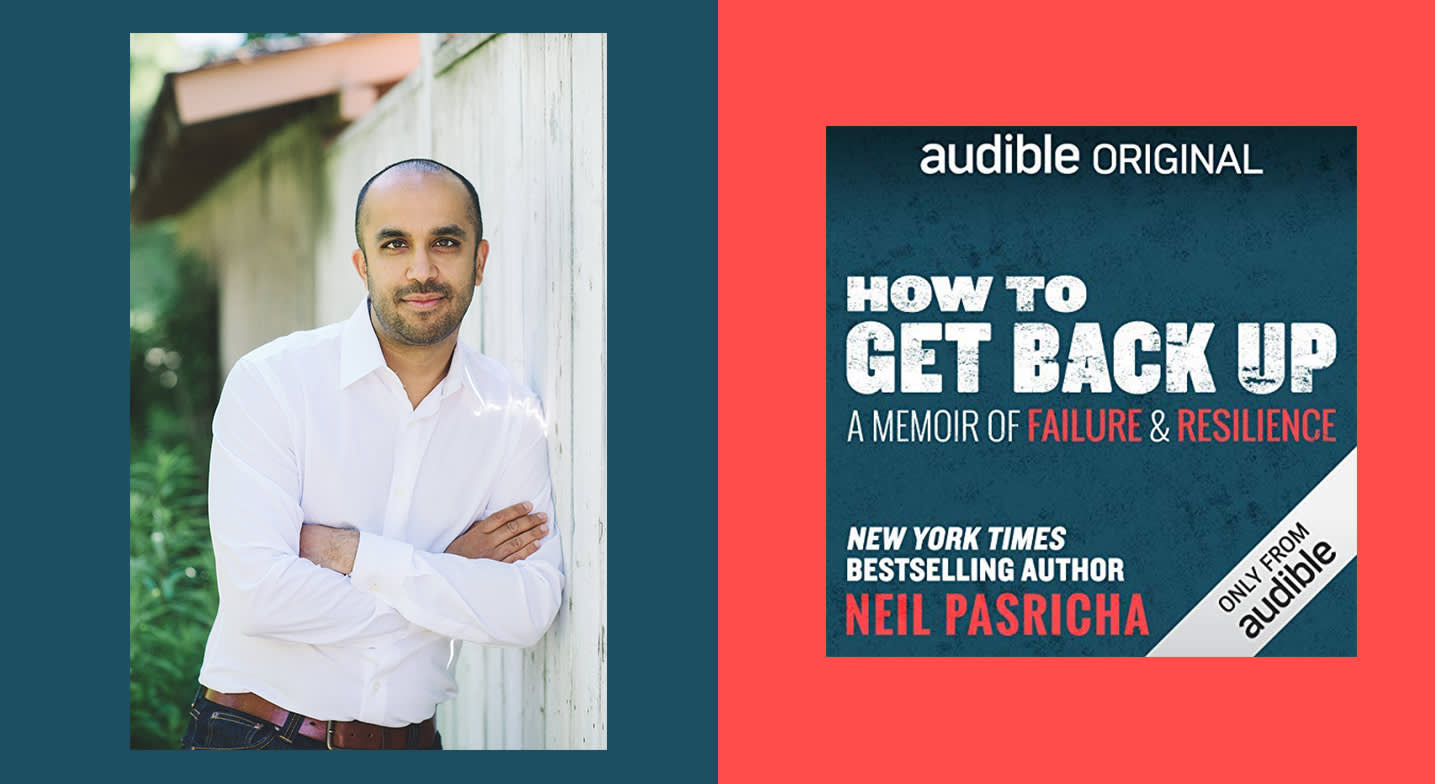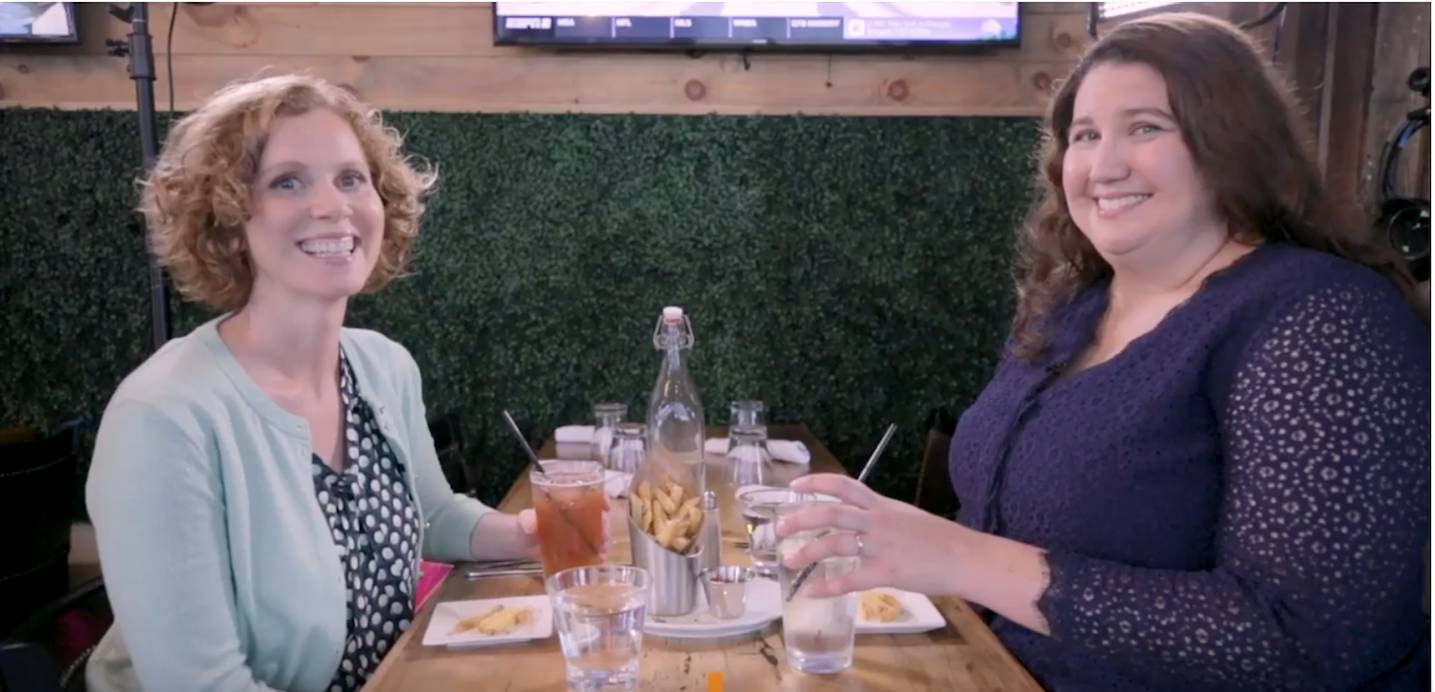It felt like an immense loss.
I had always loved books. In particular, the hardcover. Not the dustjacket — I disposed of that thin, commercial shroud right away. I prized what lay beneath: the cloth spine, the permanence of the title imprinted upon it along with the author’s hard-earned attribution, the substantiality and texture of the cardboard covers. Before intruding upon the undisturbed autonomy of the words cradled within, always I would first measure with respect a book’s physical character — its weight; the font, size, and color of its textual tattoos; the quality of its binding; its pages, held tightly in formation, a unified front, the characteristics of their paper glimpsed in the plane of their aggregated flank.
I loved books. Loved to look at them, loved to hold them, loved to read them.
But I was going blind, slowly. The diagnosis landed when I was 13: a degenerative disease of the retina that causes the progressive loss of sight, and, ultimately, blindness. The effects of the disease grew noticeable in the next few years, then mildly irritating, then profoundly frustrating. In my late teens and early twenties, my sight fading, I accepted the inevitable and took control, learning to live a blessed life as a blind man.
With the deterioration of my eyes, I felt I was losing my precious books, those I’d read already and the countless more I never would. As reading grew tiresome, I began to avoid it. I continued to buy books — in hardcover, of course — more than ever. I admired them as physical objects, revered their magic, wanted to possess them. But long before I lost entirely the ability to perceive the text within them, I began to hide from the pages inside my books. The anticipation of my loss overwhelmed the joy of reading.
I struggled with the books I had to read for my studies or work. Reading grew more arduous, more time-consuming, less palatable. For a few years I used a closed-circuit video camera and monitor to magnify text. It worked, but it was clunky and mechanical, nothing like a proverbial curl in bed with a great novel. Then it ceased to work.
My books stood unread in my home, on proud display. Eventually, the titles imprinted upon their cloth spines eluded my sight, then even the books themselves. Still, I knew they were there, felt them on the shelf, pulled them out and held them from time to time.
Meanwhile, I trained my other senses to fill in for my eyes. I learned to use a blind man’s cane, and with months of practice discovered with grateful surprise how effective and natural that tool can be for navigating the world. Likewise, I studied the nuances deciphered by my fingertips and was amazed by the previously ignored perceptions they offered me. Even my memory stepped up to help occupy the visual void. Initially, constructing and recalling mental maps of my physical environment demanded systematic effort and was draining. With time, however, that process grew reflexive, memory evolving to resemble something more like natural perception than cognitive process.
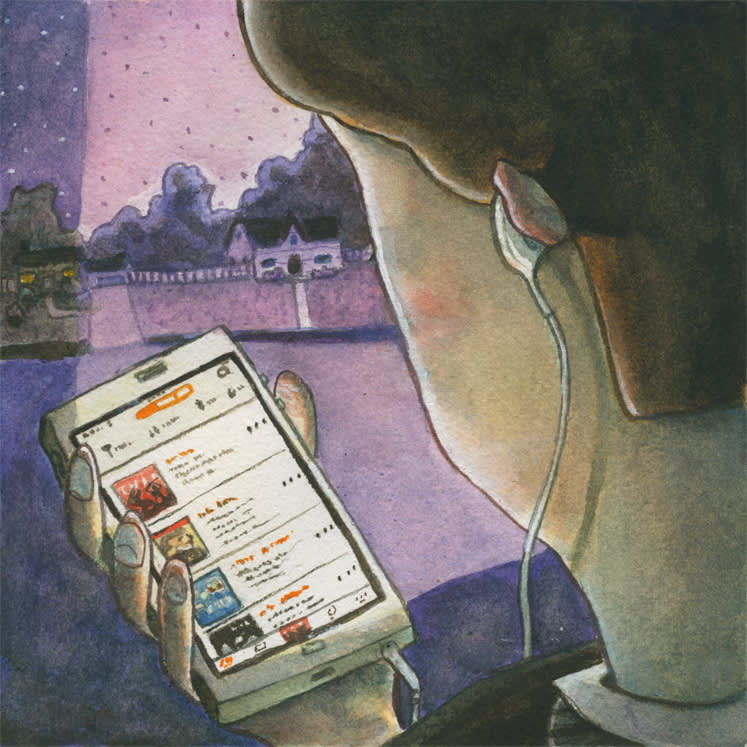
My ears took the lead. The unceasing barrage of deteriorating visual data fell quiet in my mind, and in the calm I began to listen to my world. I heard spaces, heard motion, heard actions and behaviors, heard detail and complexity that even the healthiest of eyes cannot see. The more I listened, the more I heard.
But with text, I heard digitally synthesized, tinny voices: the voice of the screen-reading software I used to interact with my computer. The voice of the National Federation of the Blind’s automated service that reads newspapers and magazines to subscribers. The voice of my handheld media device for the visually impaired. These eerie, robotic voices were difficult to get used to, but this technology greatly softened the blow of blindness … just not the loss of my beloved books. No artificial voice, no software approximates the experience of reading. I thought I’d lost that experience along with my sight.
And then I discovered audiobooks. I fell in love again.
Michael Jayston brilliantly brought to life the characters of John le Carré’s captivating George Smiley novels. Ralph Lister artfully recreated the world of feudal Japan for James Clavell’s epic Shogun. Nelson Runger skillfully animated the life of one of our greatest founding fathers with David McCullough’s masterful John Adams. And Arthur Morey elevated the entertainment of good fiction to a higher level with his gifted narration of the novels of authors like Jack Vance. I couldn’t hold these audiobooks, couldn’t feel them, couldn’t display them on my shelf. But that was a trivial price to pay to read great books again — to experience them as rich, immersive performance. I was hooked. It felt like a great blessing.
These days I listen to one or two audiobooks each week. I listen in bed, I listen on the treadmill, I listen on planes and trains. I listen alone, listen with my wife, listen with our children. I love audiobooks. I always will.
I recently wrote a book of my own, Eyes Wide Open: Overcoming Obstacles and Recognizing Opportunities in a World that Can’t See Clearly. I’m glad I wrote the book, and I’m proud of it. But writing Eyes Wide Open was difficult; a long, intense process. I relived much of my life — great happiness and triumph, but also much pain and fear and anxiety and sadness.
Narrating my audiobook, on the other hand, was pure joy! A small contribution to the art form that has so enriched my life, Eyes Wide Open will, I hope, touch the ears and hearts of its listeners as so many audiobooks have touched mine.
